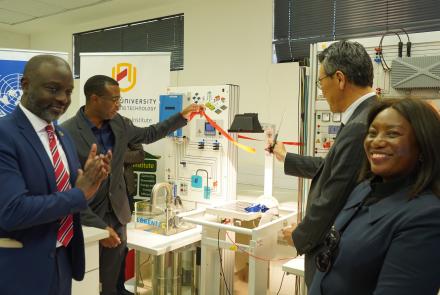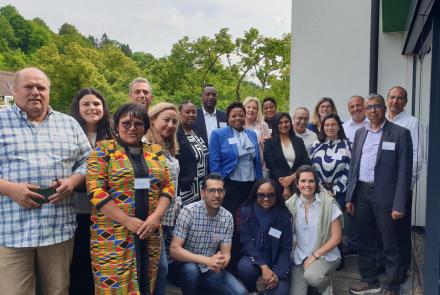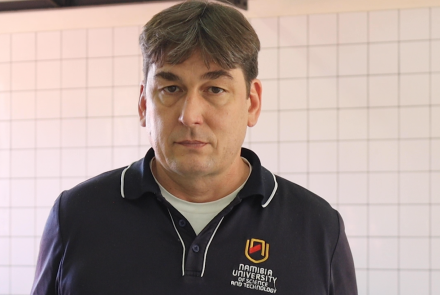Home
With the University reaching the milestone of ten years since the NUST Act of 2015 was enacted, this theme reflects the Institution's commitment to advancing knowledge and fostering innovation. Whilst the Institution has been in existence since 1980, this theme highlights the transformative role of education, science, and technology in driving societal progress and sustainable development since the transformation to a university ten years ago.
It celebrates achievements in research, academic excellence, and the application of cutting-edge technologies that have contributed to both local and global development. The theme underscores the university's vision of shaping a brighter future through intellectual leadership and impactful collaborations.
Date of Release: 15 March 2025
Application Deadline: 30 April 2025
Officials from the Ministry of Home Affairs will be on campus from Monday, 17 February to Friday, 21 February 2025, to collect study permit applications. Ensure you have all the required documents ready to avoid delays.
Inviting all Entrepreneurs, Investors & Innovators to the launch of the ‘Southern African Entrepreneurship Venture Builder’
International students are required to prepare all necessary supporting documents before travelling to Namibia.
The Ministry of Home Affairs, Immigration, Safety, and Security (MHAISS) has announced that the application period for Study Permits for the 2025 academic year is now open.
Applications can be submitted from 1 November 2024 to 31 March 2025
+ CALL FOR ERASMUS mobility between partner countries and the University of Huelva (UHU)
Key Action 1 (KA 171)
The RT Academy in Russia is offering a FREE online training course for journalists/Journalism students, provided by Russia TV through the RT Academy
NUST is excited to introduce the Postgraduate Walk of Achievement walkway on the NUST campus. In a nutshell, it emulates the famous Hollywood Walk of Fame.



















